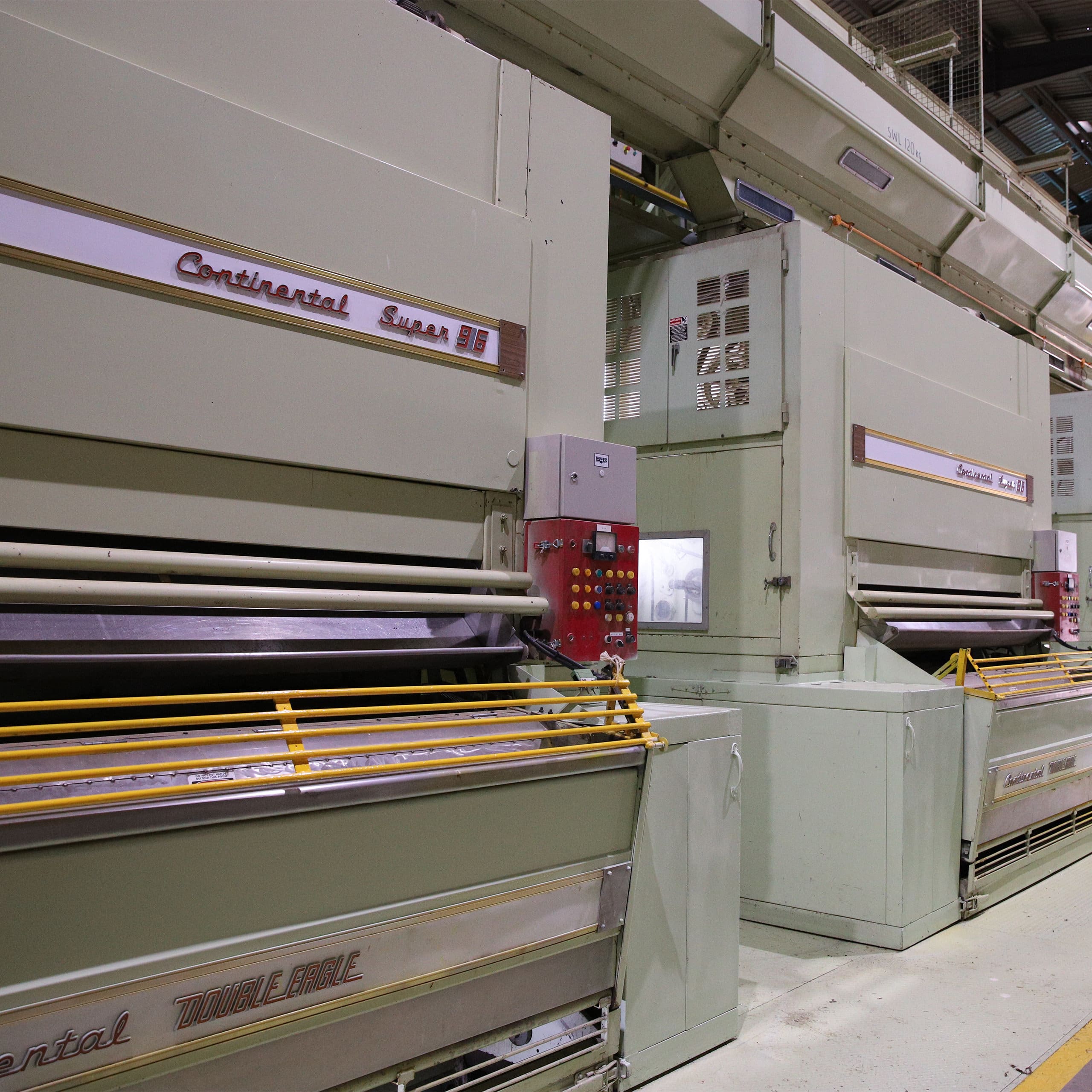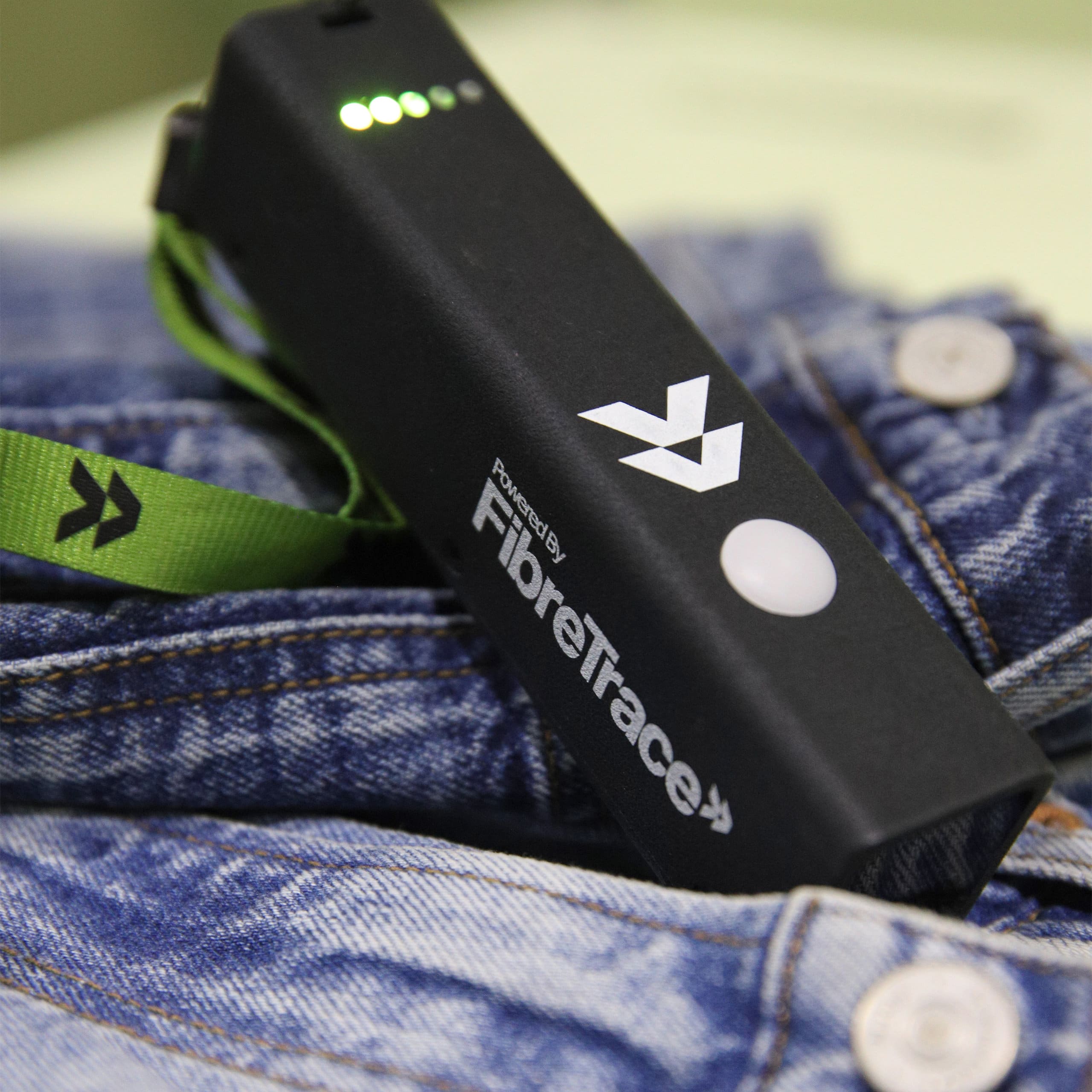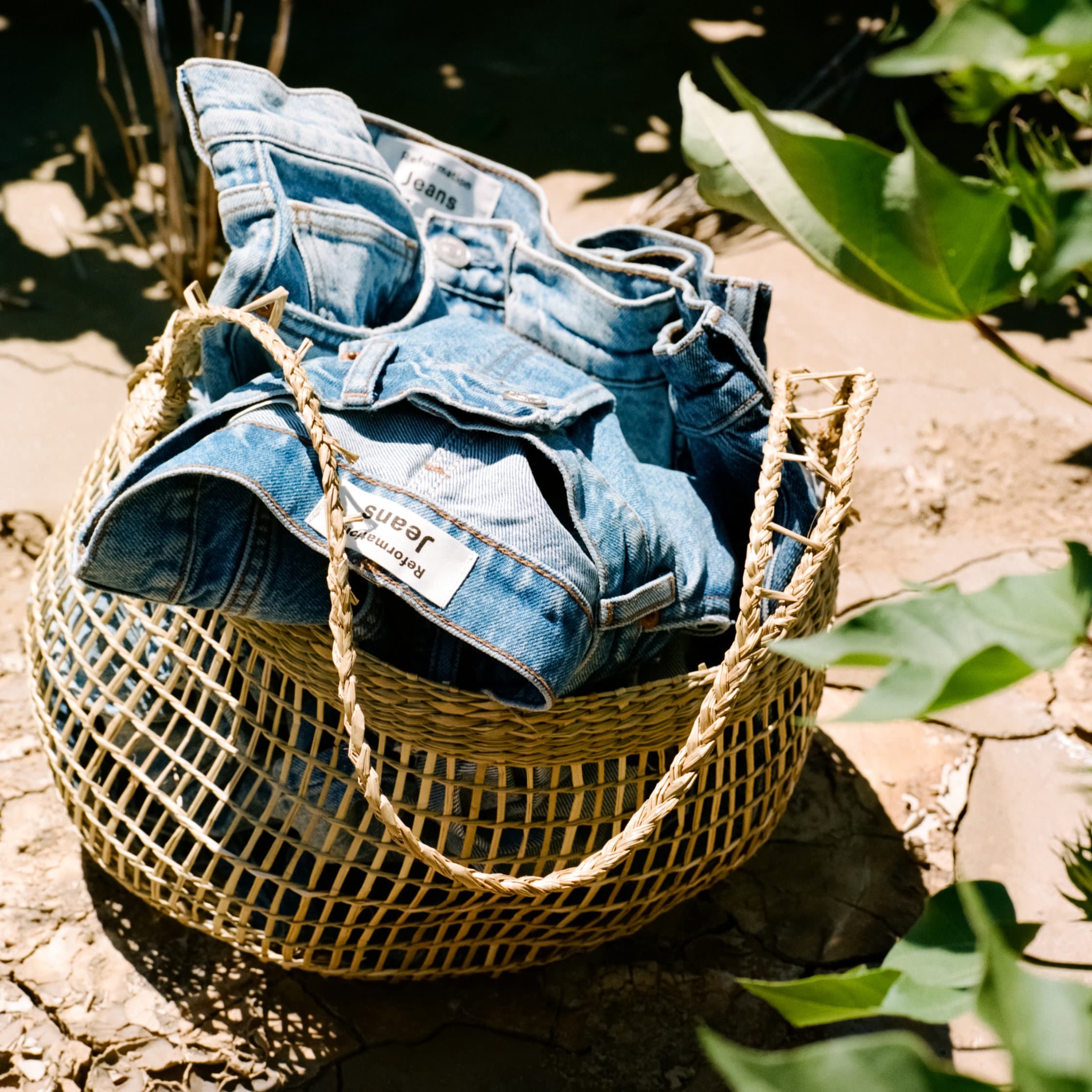Fibretrace

Moree, New South Wales, Australia
This denim started out as a seed at the world’s first carbon positive farm in Australia. At Good Earth, they plant and harvest cotton using renewable energy, emphasizing soil health, and farming in harmony with natural vegetation.
Moree, New South Wales, Australia
Next, the cotton went to Wathagar Gin where the raw fibers are separated from their seeds and cleaned. The high tech FibreTrace™ pigment is also added here, so you can start keeping track of your jeans.
Hacı Sabancı Organize Sanayi Bölgesi Acıdere OSB Mah. Celal Bayar Bul. No:3 Sarıçam - Adana - Turkey
The cotton then travels to Bossa Mill in Adana, Turkey to be spun into yarn, dyed, and woven into denim fabric. The mill maintains a zero waste principle, uses over 50% solar energy, and reports annually on their sustainability progress.
Karadeniz Mahallesi Cebeci Caddesi No:179/A, Kucukkoy 34250, Istanbul, Turkey
The new fabric heads to STROM, a garment manufacturer in Istanbul, Turkey. Here, the denim is cut and sewn into our designs.
Karadeniz Mahallesi, Ertugrul Gazi Cad. No:20, IC Kapi No:1, Gaziosmanpaşa 34245, Istanbul, Turkey
The almost-complete garments then stop by another STROM facility to be washed and finished, using sustainable technology like nano-bubbles and laser drying to create the Ref Jeans you see today.
2263 E Vernon Ave, Vernon, CA 90058 USA
The finished denim takes a long trip to the Los Angeles Reformation headquarters. Here, our team makes sure everything meets our quality standards, and ships it out to stores, or right to you.

FibreTrace® goes deeper into your denim’s past than you with your ex’s Instagram. Here’s how it works:

FibreTrace® turns their traceable pigment into a liquid called slurry.

The high tech pigment is added to the raw cotton during cleaning, also known as ginning.

The fiber is scanned at every step of its production, building a lifetime tracking history.

We share the denim’s whole life with consumers at the product level.

